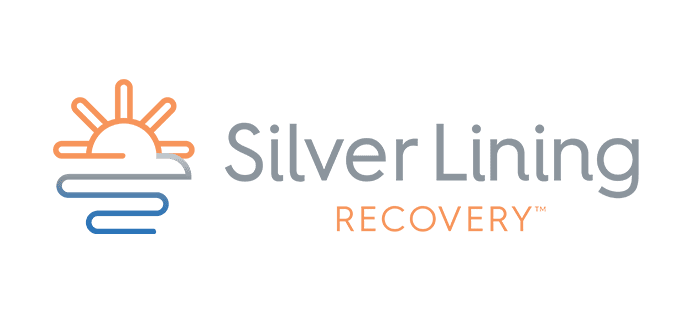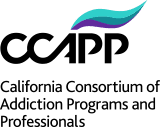Intensive Outpatient Treatment
Intensive outpatient treatment (IOP) is an effective option to begin the road to sobriety without uprooting your entire life. An IOP is an opportunity to re-work your life without alcohol or drugs, go to individual counseling, group therapy, and learn relapse prevention techniques while also remaining in your own home. This form of recovery is designed for people struggling with serious addiction and need oversight during the early days of treatment, or it can serve as a continuum of care for clients leaving an inpatient treatment program. So what can you expect from your time in an IOP? Below are some important lessons learned from people who have completed intensive outpatient treatment for drug and alcohol addiction. Hopefully, sharing these insights will help you decide which path to recovery is the right one for you.
Love thyself
For many people suffering from alcohol and substance use disorders, feelings of self-loathing and low-self esteem play a large role in their life. Those in active addiction often use substances to hide painful emotions and deep suffering, but they also feel shame and disgust for continuing to use alcohol or drugs to cover their sadness. During intensive outpatient treatment, individuals learn to have compassion for themselves through different therapeutic approaches designed to increase self-esteem. Through IOP, people begin to understand how to love who they are again and treat themselves with the same respect they give to others.
Listen to your body
During active addiction, individuals not only spend most days beating themselves up emotionally, but physically as well. Drugs and alcohol can cause long-term health issues, malnutrition, lack of sleep, and weight loss. In treatment, people reconnect with their bodies again and learn the importance of self-care and sleep. As you begin to detox from substances, you discover how important rest is for your mind, body, and soul. Structure is created through daily counseling and group sessions, and this helps individuals develop a routine which often includes better eating and sleeping patterns. People who used substances to numb themselves start to enjoy “feeling again.” Someone in recovery recalls, “There is something satisfying about being able to feel pain and sadness again in recovery. I can’t help but think, ‘look at you, handling this issue instead of using it as an excuse to go get high.’” Many individuals realize that listening to their body and learning to “feel” is crucial for long-term health and lasting sobriety.
You are not alone
During IOP, people discover how vital support and community are during recovery. Connecting to those who understand exactly what you are going through is immeasurable. You start to feel immense gratitude knowing you are not alone in your pain. Being fully accepted for who you are “warts and all” allows you the space and security to heal and recover. Many IOP programs encourage additional support services like 12-Step programs SMART Recovery, and other groups to reinforce all of the work done during treatment. Such programs provide a community setting where people in recovery can share their experiences, stories, and provide mutual support in a safe, non-judgemental environment. As one person in recovery states, “ I found it [SMART Recovery program] empowering and an effective way of preventing myself from becoming complacent on my recovery journey.”
Being vulnerable is brave
Asking for help can be a struggle for many in active addiction. Taking this step involves taking a risk and making yourself vulnerable. Vulnerability can be a scary thing for many, but it’s actually the bravest action you can take. Famous author and professor Brene Brown states, “Vulnerability is anything but weakness. In fact, it takes true strength and courage to allow yourself to be vulnerable. By having the courage to be vulnerable and open up to ourselves and the world around us we come directly in touch with our most authentic self. And, in doing so, can live a much more fulfilling and happier life.” This fact couldn’t be more true when it comes to those battling addiction. Being vulnerable and admitting you have an addiction poses risks to your reputation and relationships – and that is honestly scary. Still, by sharing those very things with those in treatment and recovery, it can open up a whole new world filled with support, love, and a new life in sobriety. Many feel in treatment programs such as IOP, you are finally able to be “fully seen” and loved despite your transgressions, past behavior, and other things that can make you feel unlovable. This vulnerability allows you to be honest with yourself and those around you and true healing can finally begin.
Accept who you are
The sessions, counseling, post-rehab programs and other treatments during IOP teach individuals to learn to accept where they are in life, the events that have happened in their life and who they are. During the program, individuals find a new and different perspective on how their past experiences ultimately shaped the person they are today. They also realize that their addiction is a disease. During treatment they are taught that those who are in active addiction are not thinking properly, leading them to do things that may have been bad or wrong – but to remember that they are not a bad person. Understanding the difference between the two makes a big difference in learning to move forward in life and not stay stuck in shame or guilt.
Time to forgive yourself and let go
Individuals in IOP learn to forgive themselves and let go. Therapy sessions focus on helping people reframe the way they think about themselves and those around them, and to let go of the things and people that no longer serve them. Learning to forgive yourself and others is a lot easier than holding onto the anger and resentment that can lead to using. These lessons can help those in recovery stay focused on what matters long after treatment. Many people feel they have learned to love themselves and to find compassion for others, even when it’s not easy to do so – keeping them on the path to sobriety.
At Silver Lining, we offer affordable outpatient and intensive outpatient treatment programs that focus on effective tools, behaviors, and methods that will give you healthy new ways to interact and advance through your recovery to a life free of addiction. The professional team you work with will provide you with honest feedback, comfort, and support to help get you through your rehabilitation process successfully. You matter, and we are excited to help foster your growth personally, professionally, spiritually and beyond. Call Silver Lining at (833) 844-4769 and start your road to recovery today!
If there is anything we want our readers to take away from this, it is this: reaching out for help does not mean you are weak, it means you are strong and courageous. If IOP is something you think you need, don’t be afraid to speak up and ask for it. If you think community and vulnerability is something you need, share that with a trusted person in your life. Please take care of yourself. You are the only you in this world, and you have one life. Live it well.







